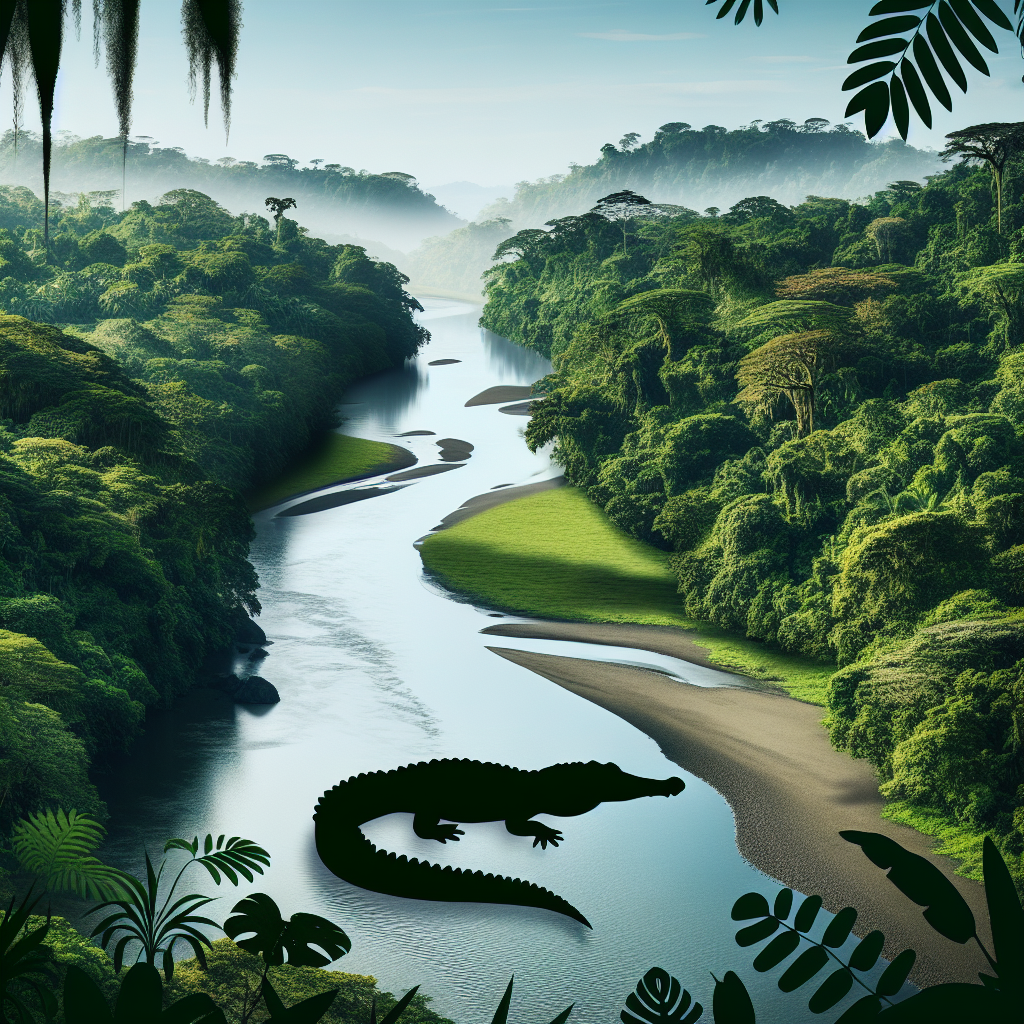Crocodiles Are Back in the Spotlight: Addressing Concerns Over Population Control in Costa Rica
In recent months, Costa Rica has seen a notable increase in crocodile sightings, prompting debates among locals and experts alike about the implications for human-wildlife interaction and potential overpopulation. While crocodile enthusiasts may revel in the thrill of spotting these majestic creatures, many Costa Ricans are growing concerned about the impact of more frequent encounters with these formidable predators.
The American crocodile (Crocodylus acutus), revered and feared in equal measure, has sparked conversations about whether the current population is balanced or requires human intervention. Some citizens argue that the rise in crocodile numbers poses significant threats to pets and individuals, leading to proposals for a controlled hunting trial. Such a measure would mark a dramatic shift, as hunting has been illegal in the country for decades.
Vincent Losasso, a biologist and founder of Guanacaste Wildlife Monitoring, suggests that while the notion of a crocodile hunt is being floated, experts across the board dispute the idea of overpopulation. In fact, many professionals in Costa Rica affirm that the crocodile population is simply rebounding from historical lows due to past hunting. Regular crocodile sightings, particularly during peak reproductive seasons, reflect a thriving ecosystem rather than an unsustainable one.
Concerns have been raised surrounding the feared absence of natural predators to regulate the crocodile population. However, Losasso points out, juvenile crocodiles face numerous threats in their early life stages, including predation from various species. Thus, the notion that humans are responsible for managing crocodile numbers may stem from a misunderstanding of ecological dynamics.
Moreover, with growing visibility along popular recreational areas, there is an understandable fear among families. The moral obligation to safeguard both human lives and wildlife becomes an increasingly pressing issue. Instances of crocodiles venturing too close to populated beaches lead to increased awareness about the shared spaces between humans and wildlife.
It is important to reflect on the relationship between humans and nature. As stewards of creation, we are called to respect and care for the biodiversity around us. This aligns with biblical teaching, particularly in Genesis 1:26-28, where humanity is entrusted with the responsibility to govern the earth and its creatures wisely and compassionately.
While some argue for hunting as a means of conservation, it may not be necessary nor effective at this moment according to current expert opinions. Instead, enhancing public awareness through education and proper signage near crocodile habitats could provide a solution that respects both human concerns and wildlife integrity. Relocations of certain individuals may also be explored more fully, but expert guidance should remain central to any decision-making process.
In considering this unfolding situation, we are reminded of the broader spiritual lesson of stewardship embedded in biblical teachings. Just as Jesus taught about the value of all living beings, proclaiming that “not one of them will fall to the ground outside your Father’s care” (Matthew 10:29), we must recognize that every creature plays a distinct role in the tapestry of life.
As communities navigate the complexities of human-wildlife cohabitation, let us reflect on our responsibility as caretakers of God’s creation. Encouraging open dialogues and informed discussions will not only enhance our relationship with nature but also promote a culture of respect and understanding.
In this rapidly evolving scenario regarding crocodiles in Costa Rica, it’s essential to recognize that our actions today shape the ecosystem of tomorrow. Let us strive to engage constructively, embracing both the awe and the fear that these magnificent creatures inspire, and fostering a spirit of collaboration as we seek balance in our shared environments.
Explore and dig up answers yourself with our BGodInspired Bible Tools! Be careful – each interaction is like a new treasure hunt… you can get lost for hours 🙂


